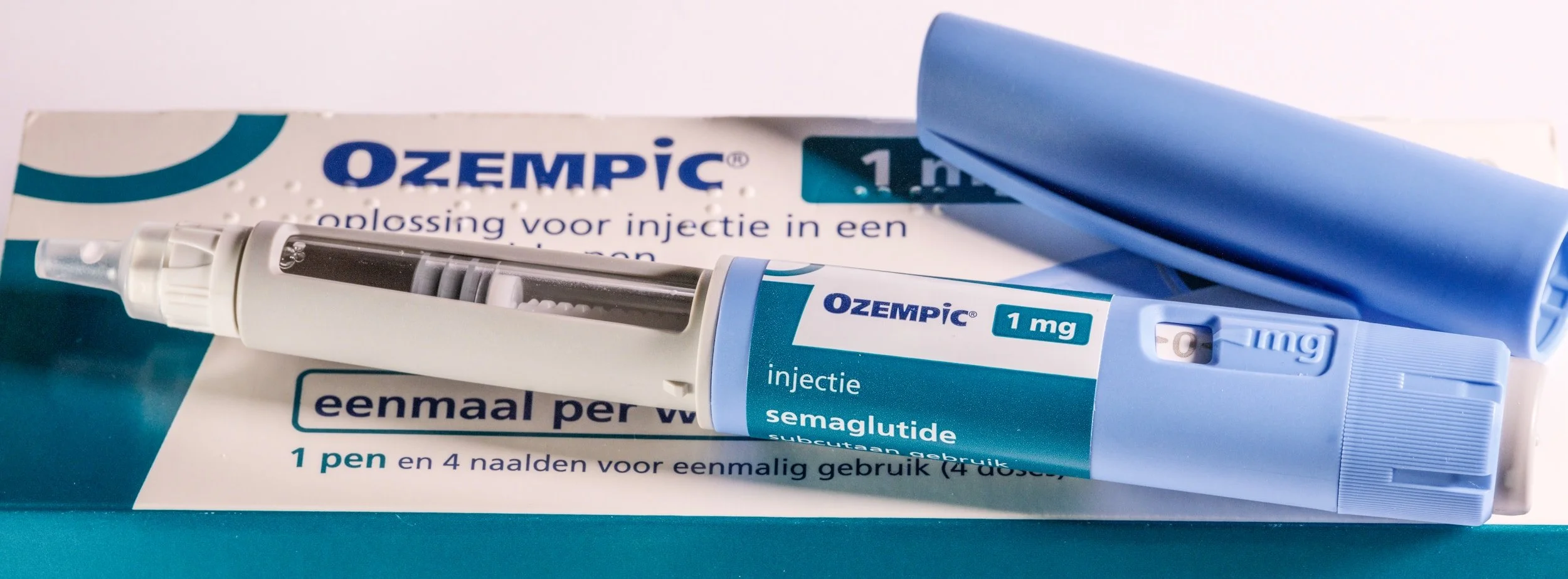Semaglutide for AUD: New Hope in Addiction Treatment
Semaglutide – More Than Just a Weight Loss Drug?
Semaglutide. By now, you’ve probably heard the name—whispers of a “weight loss revolution,” headlines about its impact on diabetes, maybe even a celebrity endorsement or two. But beyond the buzz and the weight loss narrative, some genuinely intriguing science is emerging. Researchers are now exploring semaglutide’s potential in a completely different realm: addiction, specifically Alcohol Use Disorder (AUD). A recently published, NIH-funded randomized clinical trial is turning heads by suggesting that this medication, known for its effects on metabolism, might also hold surprising promise in treating AUD. It’s early days, but the evidence is compelling enough to warrant a closer, evidence-based look.
The NIH Study: Promising Early Evidence for Semaglutide in AUD
Published in JAMA Psychiatry (full article link) , this phase 2 study—rigorous, double-blind, and placebo-controlled—set out to directly evaluate semaglutide’s impact on alcohol consumption and craving in adults with AUD. And what did they find? The abstract speaks for itself. In a controlled laboratory setting, participants receiving low-dose semaglutide consumed significantly less alcohol compared to placebo. There were statistically significant reductions in grams of alcohol consumed and peak breath alcohol concentration. Beyond the lab, semaglutide treatment correlated with a reduction in drinks per drinking day and weekly alcohol craving. Intriguingly, the study even hinted at a potential benefit for cigarette use in a subgroup of participants. The researchers concluded, "These findings provide initial prospective evidence that low-dose semaglutide can reduce craving and some drinking outcomes, justifying larger clinical trials to evaluate GLP-1RAs for alcohol use disorder."
A Dose of Caution: Interpreting Early-Stage Research
Let’s inject a healthy dose of scientific caution. This is phase 2 research with a relatively small sample size (48 participants) focused on non-treatment-seeking individuals with AUD. It is crucial to emphasize that semaglutide is not presented as a “cure” for alcoholism, and the study itself calls for larger clinical trials. Still, the signals are there. The data points are intriguing, and as we sift through the initial excitement, important questions emerge. Why would a medication primarily designed for diabetes and weight management affect alcohol use? What is the underlying mechanism? How can we, in Integrative Psychiatry, make sense of these findings and potentially apply them to a more holistic approach to addiction recovery?
The Gut-Brain Connection: Unlocking the Mechanism
The answer, as is often the case when exploring the complexities of the human body, lies in connections—specifically, the well-established gut-brain axis. Semaglutide, as a GLP-1 receptor agonist, does not act in isolation. It mimics a naturally occurring hormone, GLP-1, which plays a multifaceted role in regulating blood sugar, appetite, and, crucially, brain function. The gut and the brain are in constant, bidirectional communication, influencing each other in profound ways. In the context of addiction, this gut-brain link is increasingly recognized as a key player in craving, reward pathways, and the neurobiological underpinnings of compulsive substance use. Preclinical research has already suggested that GLP-1 receptor agonists might reduce the intake of various substances, and this new NIH-funded trial provides some of the first compelling clinical evidence in humans for alcohol use disorder. It suggests that semaglutide may work, at least in part, by modulating gut-brain signals, dampening craving, and subtly shifting the neurobiological landscape that fuels addictive behaviors.
Integrative Psychiatry's Perspective: Why This Research Resonates
For Integrative Psychiatry, this research is validating. It reinforces our core belief in the interconnectedness of body and mind and the importance of addressing biological factors alongside psychological and social dimensions of mental health. We have always emphasized the role of nutrition, metabolic health, and gut function in mental well-being. This semaglutide study adds another layer to that understanding, particularly in the context of addiction. It suggests that carefully targeted biological interventions can be valuable tools in a comprehensive recovery approach.
Integrating Semaglutide Research into Clinical Practice: A Thoughtful Approach
How might we integrate these findings into our practice at Manhattan Integrative Psychiatry? It is not about suddenly prescribing semaglutide to everyone with AUD; it is about thoughtful, evidence-informed integration:
• Informing Personalized Treatment Strategies
• Enhancing Multi-Modal Approaches
• Focusing on Root Causes and Sustainable Recovery
• Embracing Cautious Optimism and Continued Research
The Journey of Discovery in Addiction Treatment
The “weight loss buzz” around semaglutide is just the surface. Beneath it, a much more complex and compelling story is unfolding—a story about the intricate connections between our gut, our brain, and our vulnerabilities to addiction. For Integrative Psychiatry, this research is a powerful reminder that true healing and recovery require looking beyond simple solutions, embracing complexity, and always considering the whole person in our quest to help individuals find their path to well-being.
What will future research reveal about these fascinating gut-brain connections and the future of addiction treatment? The scientific journey is just beginning.

